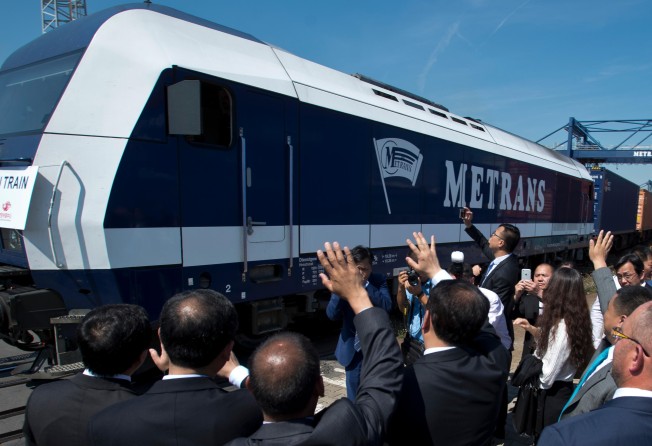China’s new world order ‘unrealistic’ if built on belt and road alone, senior US diplomatic observer says
Beijing cannot avoid dealing with the developed world if it wants to build a technologically advanced country

It will not be realistic for China to build an alternative world order through its massive infrastructure investments overseas as other regional players do not want to take sides between Beijing and Washington, according to a senior US diplomatic observer.
Miles Kahler, a senior fellow of the Council on Foreign Relations, said China’s infrastructure strategy – known as the “Belt and Road Initiative” – had already received resistance from Malaysia, and there were concerns the Maldives may be next.
China’s flagship belt and road strategy was launched by President Xi Jinping in 2013 to boost infrastructure and trade links with more than 60 nations from Asia to Africa. Financing for projects is available through the China-led Asian Infrastructure Investment Bank (AIIB).
“Many people see AIIB and the Belt and Road Initiative as part of the parallel economic system China is building. I’m not sure if that’s realistic or feasible,” Kahler said on Thursday in a forum on global governance in Beijing.
“I don’t think countries in the region want that. They all have their own interests and autonomy to defend.”
Key belt and road projects include the US$62 billion China-Pakistan Economic Corridor and the Hambantota Port in Sri Lanka, leased to state-owned Chinese companies.
But these projects are seen as China’s attempt to extend its geopolitical influence, leaving financially poor nations indebted and inclined to seek Beijing’s favour, in a challenge to the US presence in the region.
Developed nations such as Britain and France have not signed memorandums of understanding for belt and road projects, citing a lack of transparency.
Malaysia has called for a review of the US$15 billion East Coast Rail Link high speed railway project, contracted to China Communications Construction.
This week’s election victory of Ibrahim Mohamed Solih as president of the Maldives has also cast doubt on the project with China signed by his predecessor.
“Countries, especially medium-sized countries, of which there are many in Asia, are not interested in transferring from a US-dominated order to a China-dominated order,” Kahler said.
“What they would like to see are competitive orders, not the kind of conflicts we see today.”
The US announced US$113 million in new investment for the Indo-Pacific region in July. Last week, the European Union also put forward its infrastructure and investment plan for Asia with an emphasis on sustainability.
Kahler said Asian nations wanted competition among major players in the region, but did not want it to become too strong.
“I hope there’s competition that’s restrained, but if competition gets out of hand and becomes rivalry, it will become very damaging,” he said.
He added that if China constructed an order in which it had “rounded up a group of developing countries”, it would be damaging for China’s aspirations to become a rich, technologically advanced country.
“Because they are not going to get there by trade and investment with developing countries – which are essentially providing natural resources and commodities to China. They have to somehow deal with the advanced industrialised countries for their own benefit [as well],” he said.
It will not be realistic for China to build an alternative world order through its massive infrastructure investments overseas as other regional players do not want to take side between Beijing and Washington, a senior US diplomatic observer said.